
O F
T H E
H O R S E
O F
N A N K I N G
A N N O
S T E L L A E
1 9 5 0

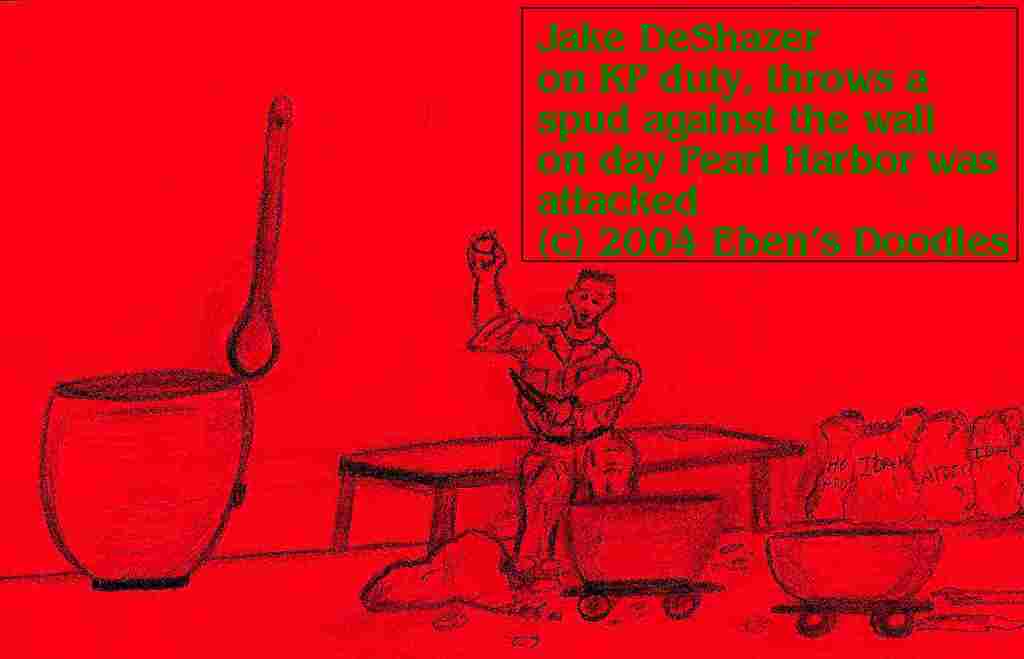
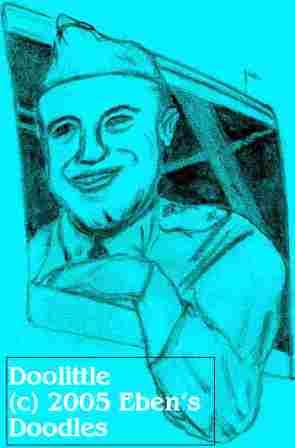
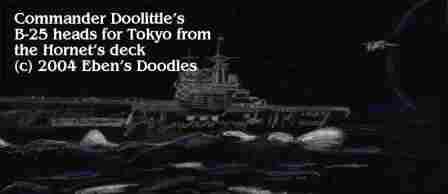
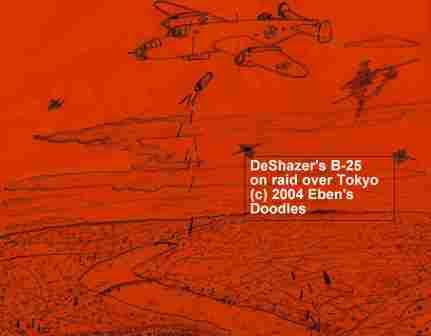
Cheering erupts on the B-25's, but the mood quickly sobers as each plane heads out over open water, hoping to reach China, not Japanese-occupied Korea and Manchuria where they will probably face firing squads if they survive the crash landings.
When the engines quit, Jacob DeShazer and the rest of the crew parachute down somewhere in northern China. Some of his buddies vanish forever in the mountains as MIA's and are marched into Siberia by the Russians, never to be seen again, but DeShazer is captured by the Japanese and shipped in a boxcar with other captives to Nanking in occupied China.
Nanking! A city of indescribable atrocities! Here the horses of war, pestilence, famine, and death have ridden up and down the avenues, reducing everyone to despair and hopelessness and total wretchedness. Formerly the capital of a free, democratic China, with a flourishing economy, a tradition of high Chinese culture, and many wealthy people and fine shops, the city has been been bombed and ravaged repeatedly by the Japanese--and tens of thousands of its citizens were executed when the city fell to the Japanese, the women and young girls first raped by the celebrating soldiers.
The American prisoners in Nanking receive no better treatment from the victors. Jacob DeShazer and other POWS were thrown into cells of unspeakable, stinking filth, overrun by rats and insect vermin, with torture added to the starvation. Formerly strong, muscled men are reduced to pitiful, living skeletons. DeShazer watches his room-mate die from the effects of starvation when he suffers a fatal heart attack. For weeks he rages against his captors and receives beatings and then solitary confinement in a cell that was no bigger than a crate--in fact, it is a crate, set in the burning sun so that he suffers the excruciating torment on thirst and heat on top of his other sufferings.
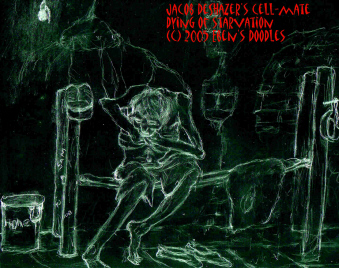
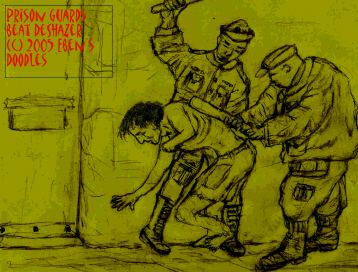
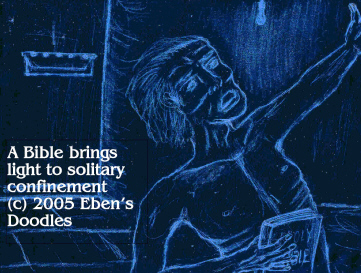
He has no choice--there are no other books--so he begins to read it, to take his mind temporarily off the horrors around him.
Devouring the first book he has seen in many months, he reaches the Apostle Paul's first letter to the Corinthians. Here he comes face to face with divine love. Transformed by reading chapter 13, the Bible's Love Chapter, Jacob DeShazer's almost insane hate for the torturing Japanese prison guards suddenly melts away in his heart and is replaced with love when he surrenders to Jesus Christ, his knees down on the squalid floor.
He is very surprised when he finds he can even show love to his guard instead of hate and curses, a man who had particularly enjoyed beating him.
When the war is over, DeShazer returns to the States to go to school at Seattle Pacific College in Washington State. He spends a year there, but cannot stop thinking of the Japanese, his former enemies. He leaves school, and taking what money he has buys a ticket for Tokyo. All he has with him is a few changes of clothes and a printed account of his imprisonment in Nanking, China, which tells of his coming to end of his hatred and how he was released from it.

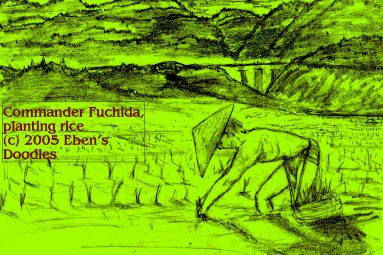

Unable to ignore this living proof that real forgiveness had taken place, Fuchida returned to his home--deeply disturbed about his own hatred and unforgiveness. How can he change? he wonders.
He re-reads the story DeShazer handed him with a smile. He realizes something in the second reading: Deshazer found the key to his own transformation in Jesus Christ. Was this it for him too? Could he call to him as DeShazer did and get the same result? He was sick of his hate-filled heart. It had poisoned his entire life. He had to find a way out of his own darkness. His wife too--she was most unhappy in their marriage.
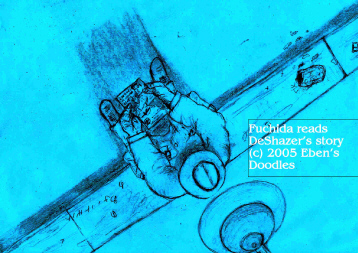
His face no longer resembling the old Mitsuo Fuchida, the bitterness gone, he found his wife at work in the kitchen and told her everything. She saw the change in him, and her eyes shone. She too wanted what her husband had just discovered. She too gave her heart and life to Jesus Christ as they knelt together.
Light flooded the Fuchida home.
Years later, in old age they liked to walk hand in hand into the nearby forest and gather wild ginger, a tangy root which they used to flavor a special dish his wife made for him.

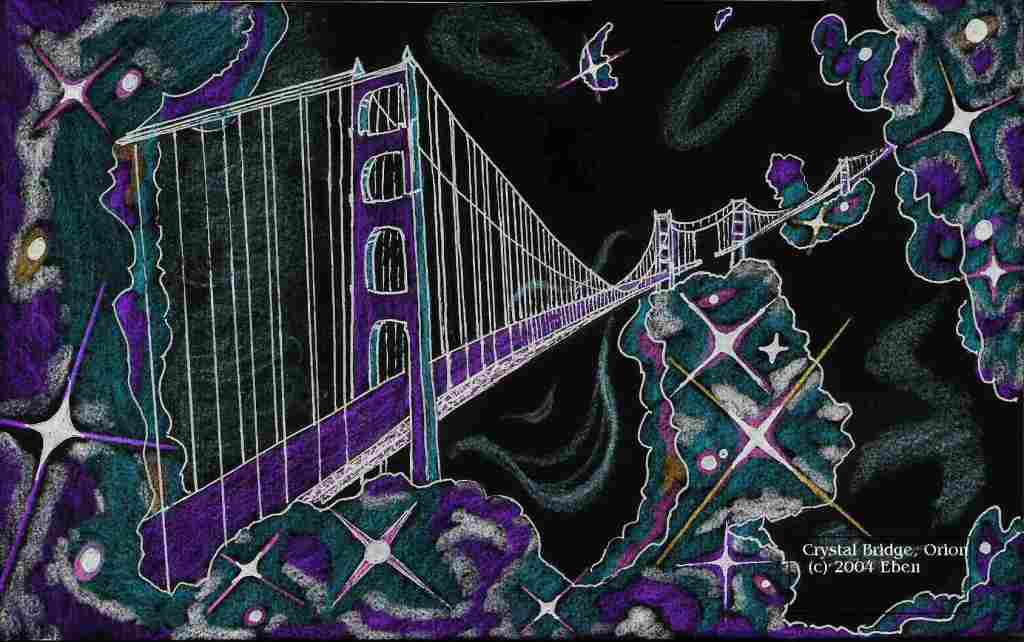
What is this Crystal Bridge in Orion and the Cavern of the Great Nebula that shines in Orion's belt in his constellation? Attacked repeatedly by Atlantean warships and o ther hostile forces, the Bridge survived, in halves. Now it is being restored, span by span. Once it connected the Twin Worlds, and reconciliation and forgiveness will repair and complete the missing section--when the last victories of champions like DeShazer and Fuchida are added to the grand total.




